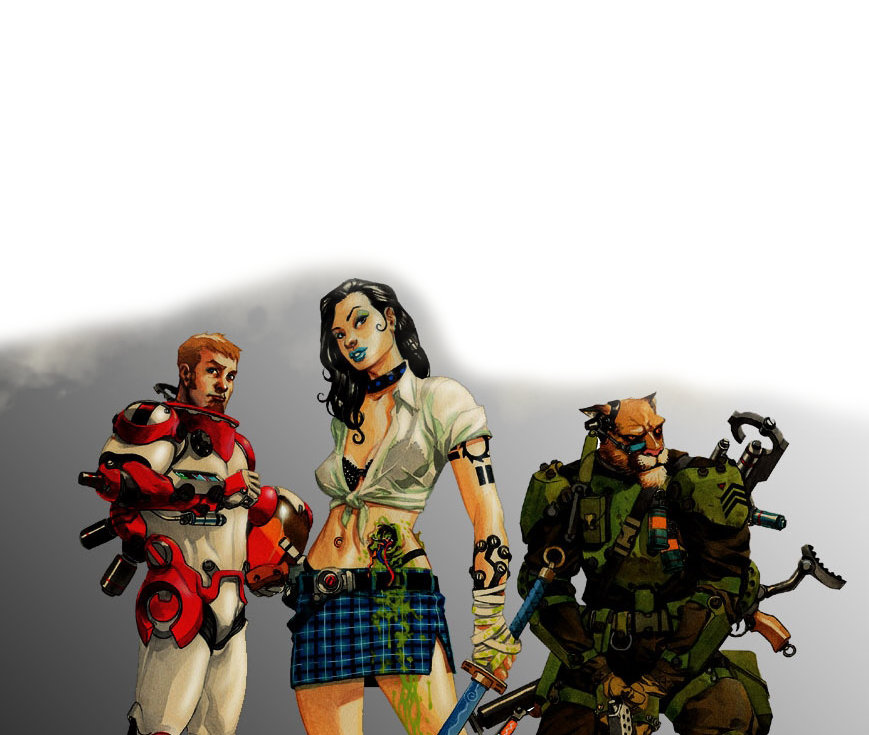
Chapter 1: Characters
The classes in D&D 5th edition are rather specialised, all of them requiring some form of dedicated training, a very specific history, or a particular event to allow characters to access the abilities of this class. While this works wonderfully for the standard fantasy roster, it isn't quite so great if you want to run a campaign where such specificity isn't plausible.
In d20 Modern, the system is rather different; there are 6 basic character classes, each based on one of the 6 ability scores (which are shared with D&D). As you might imagine, these classes don't give any abilities which couldn't feasibly be gained through natural aptitude with a particular ability.
To give players the option for more specific learning, advanced classes are introduced, which provide the more niche skills characters may acquire.
The Basic Classes
The classes in this conversion represent the wide range of skills and knowledge that people in modern world have easy access to. The six basic classes are as follows:
- Strong: Levels in this class demonstrate training in athletic endeavours. Strong Heroes typically excel at melee combat.
- Fast: Levels in this class indicate training in agility, hand-eye coordination, and reflexes. Fast Heroes typically excel at ranged combat
- Tough: Levels in this class indicate improvement in physical fitness, health, and stamina.
- Smart: Levels in this class provide the means to improve a character's reasoning and skills.
- Dedicated: Levels in this class demonstrate a devotion to a cause, an ideal, or a higher purpose. The Dedicated Hero's class features revolve around investigative, empathic, healing, and spiritual devotions.
- Charismatic: Levels in this class indicate training in winning friends and influencing people with a combination of charm, confidence, and charisma. The Charismatic Hero can be a leader, a celebrity, a con artist, or a flirt.
Advanced Classes
Advanced classes function identically to subclasses in standard D&D 5th Edition, with the exception being that all subclasses are available to all of the basic classes. For example, both Strong and Smart heroes can take the Soldier advanced class. Advanced classes are covered later on in this chapter.
Multiclassing
Due to the changes in the class system, the multiclassing system is also changed slightly. These changes stop a multiclass character being forced into taking an additional advanced class, and allows characters to take multiple advanced classes without needing to take another hero class. These alterations are covered later on in this chapter.
Class Power
As might be expected for classes without specific training, these classes will generally be less powerful than the classes in the Player's Handbook at lower levels. Optionally, you can grant characters using these classes an additional feat at 1st level if you want to bolster their power slightly.
Suggested feats for each of the classes are as follows: Strong Hero: Athlete, Grappler or Tavern Brawler. Fast Hero: Mobile, Alert or Athlete. Tough Hero: Durable, Tough or Tavern Brawler. Smart Hero: Healer, Linguist or Keen Mind. Dedicated Hero: Observant, Alert or Healer. Charismatic Hero: Actor, Inspiring Leader or Linguist.
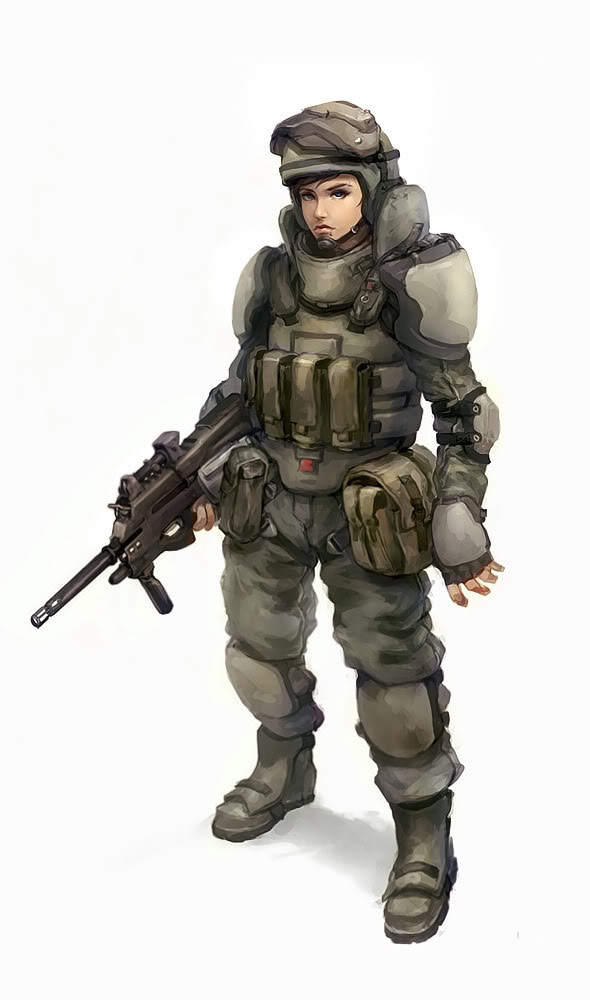

The Strong Hero
The Strong Hero uses his Strength score to best advantage. Taking a level in this class demonstrates physical training for overall strength and power. Strong Heroes excel at hand-to-hand and melee combat, as well as at other activities that best utilize physical power.
A Strong Hero might be a bodybuilder or an athlete who concentrates on the power aspect of sports. They may be quietly intimidating or robustly boisterous. They might be as gentle as they are large or a lout and a bully
Examples Of Strong Heroes
Boxers, martial artists, some types of soldiers, athletes who depend on raw physical power, blue-collar workers, and others who rely on pure brawn all fall within the scope of the Strong Hero.
Class Features
As a strong hero, you gain the following class features.
Hit Points
- Hit Dice: 1d8 per strong hero level
- Hit Points at 1st Level: 8 + your Constitution modifier
- Hit Points at Higher Levels: 1d8 (or 5) + your Constitution modifier per strong hero level after 1st
Proficiencies
- Armour: Light armour, medium armour, shields
- Weapons: Simple weapons
- Saving Throws: Strength and one of Wisdom, Dexterity or Constitution.
- Skills: Choose two from Acrobatics, Animal Handling, Athletics, History, Insight, Intimidation, Perception, and Survival
Smash
You add half your proficiency bonus (round down) to all melee and thrown weapon damage rolls.
Bully
When you successfully make a melee attack against a creature, you can immediately make a Shove action against that creature as a bonus action.
Action Surge
Starting at 2nd level, you can push yourself beyond your normal limits for a moment. On your turn, you can take one additional action on top of your regular action and a possible bonus action.
Once you use this feature, you must finish a short or long rest before you can use it again. Starting at 17th level, you can use it twice before a rest, but only once on the same turn.
Body Slam
Starting at 2nd level, whenever you make a successful Shove against a creature, they take damage equal to 1 + your Strength modifier.
The Strong Hero
| Level | Proficiency Bonus | Features |
|---|---|---|
| 1st | +2 | Smash, Bully |
| 2nd | +2 | Action Surge (One Use), Body Slam |
| 3rd | +2 | Advanced Class |
| 4th | +2 | Ability Score Improvement |
| 5th | +3 | Extra Attack, Reckless Attack |
| 6th | +3 | Strong Back, Extreme Effort |
| 7th | +3 | Advanced Class Feature |
| 8th | +3 | Ability Score Improvement |
| 9th | +4 | Remarkable Athlete, Brutal Critical (1 die) |
| 10th | +4 | Advanced Class Feature |
| 11th | +4 | Demolition |
| 12th | +4 | Ability Score Improvement |
| 13th | +5 | Supreme Grip, Brutal Critical (2 dice) |
| 14th | +5 | Improved Extreme Effort |
| 15th | +5 | Advanced Class Feature |
| 16th | +5 | Ability Score Improvement |
| 17th | +6 | Action Surge (Two Uses), Brutal Critical (3 dice) |
| 18th | +6 | Advanced Class Feature |
| 19th | +6 | Ability Score Improvement |
| 20th | +6 | Supreme Smash |
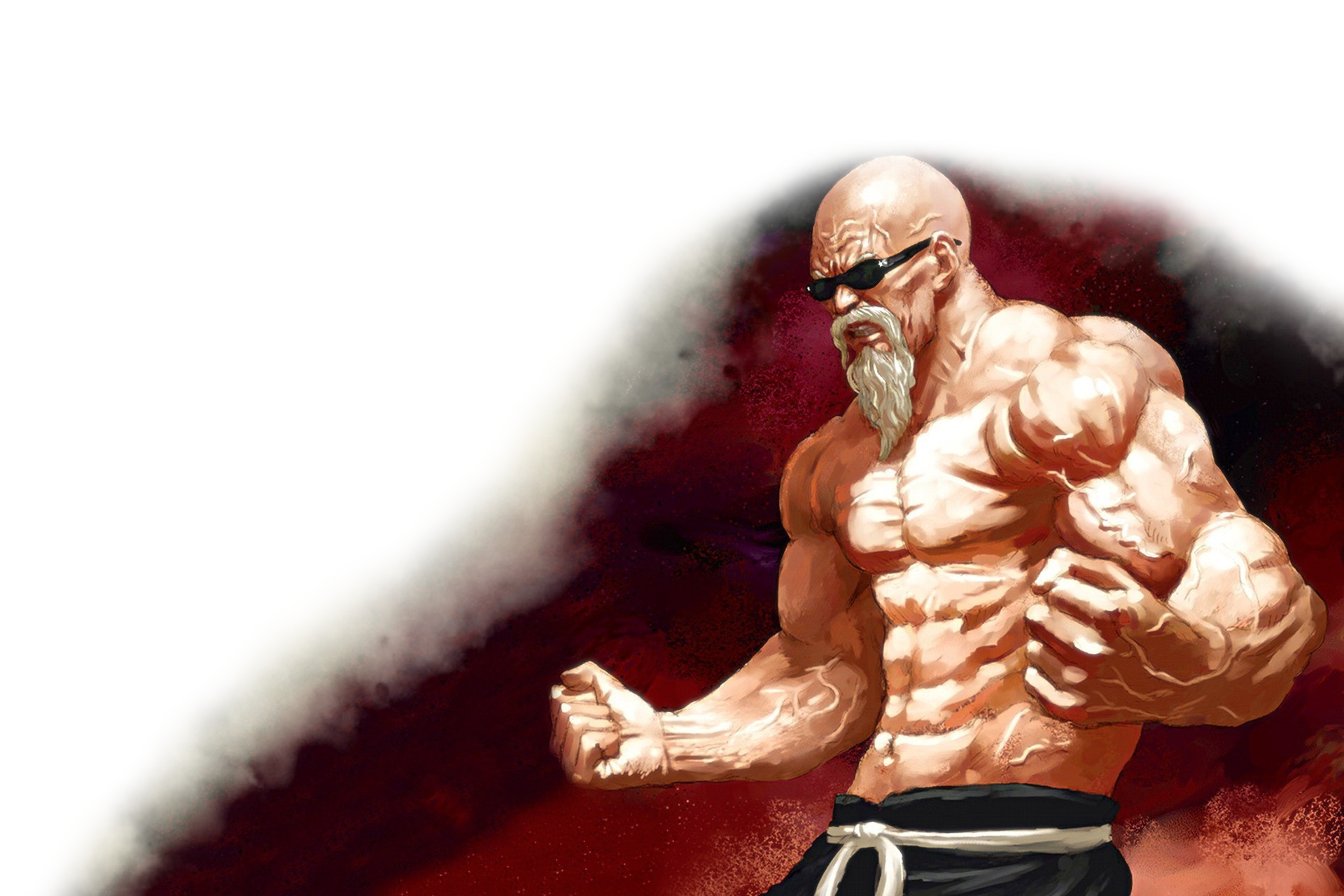
In addition, when you succeed on shoving a creature you can choose between pushing them up to 10 feet away from you, or pushing them up to 5 feet away from you and knocking them prone.
Advanced Class
At 3rd level, choose an Advanced Class. The Advanced Class you choose grants you features at 3rd level and again at 7th, 10th, 15th, and 18th level.
On these levels, rather than gaining a health increase dictated by this class, your health increase is based on the advanced class you choose.
Ability Score Improvement
When you reach 4th level, and again at, 8th, 12th, 16th, and 19th level, you can increase one ability score of your choice by 2, or you can increase two ability scores of your choice by 1. As normal, you can’t increase an ability score above 20 using this feature. Alternatively, you can select a feat instead of increasing your ability scores.
Extra Attack
Starting at 5th level, you can attack twice, instead of once, whenever you take the Attack action on your turn.
Reckless Attack
Starting at 5th level, you can throw aside all concern for defence to attack with fierce desperation.
When you make your first attack on your turn, you can decide to attack recklessly. Doing so gives you advantage on weapon attack rolls during this turn, but attack rolls against you have advantage until your next turn.
Strong Back
Beginning at 6th level, your carrying capacity (including maximum load and maximum lift) is doubled, and you have advantage on Strength checks made to push, pull, lift, or break objects.
Extreme Effort
Starting at 6th level, you gain the uncanny ability to strain your muscles past their normal strength.
When the you make a Strength-based ability check or saving throw, you can use a bonus action or reaction to gain advantage on the roll. You can do this after the roll is made but before any of the roll's effects occur.
Remarkable Athlete
Starting at 9th level, you can add half your proficiency bonus (round up) to any Strength, Dexterity, or Constitution check you make that doesn’t already use your proficiency bonus.
In addition, when you make a running long jump, the distance you can cover increases by a number of feet equal to your Strength modifier.
Brutal Critical
Beginning at 9th level, you can roll one additional weapon damage die when determining the extra damage for a critical hit.
This increases to two additional dice at 13th level and three additional dice at 17th level.
Demolition
Beginning at 11th level, your melee attacks deal double damage to objects. In addition, you double your proficiency bonus on Strength (Athletics) checks made to break something.
Supreme Grip
Starting at 13th level, you have incredible technique and hand strength allowing you to maintain a powerful grasp on objects others would struggle with. When you are wielding a weapon with the versatile property, you always treat them as if you were wielding them in two hands, and you ignore the disadvantage imposed by the heavy property of weapons with which you are proficient.
Additionally, you can wield a weapon with the Two-Handed property in a single hand, but doing so imposes disadvantage on any attack rolls you make with it, a -2 penalty to damage rolls you make with it.
Furthermore, you have advantage on ability checks and saving throws made to avoid dropping a held object or being disarmed.
Improved Extreme Effort
At 14th level, your ability to strain your body past it’s limits improves further. When the you make a Strength-based ability check or saving throw, you can use a bonus action or reaction to automatically succeed on the roll. You can do this after the roll is made but before any of the roll's effects occur.
Once you use this feature, you must finish a short or long rest before you can use it again.
Supreme Smash
At 20th level, you may now add your full proficiency bonus to all melee weapon damage rolls.

The Fast Hero
The Fast Hero uses their Dexterity score to best advantage. Taking a level in this class demonstrates training in hand-eye coordination, agility, and reflexes. Better defences, a good attack progression, and a natural aptitude in athletics that require speed and grace combine to define the Fast Hero.
A Fast Hero might be literally quick on their feet, or they might simply move with a catlike grace. They might possess uncanny coordination and amazing reflexes. They use their natural inclination toward Dexterity-based endeavours to make their way in the world.
Examples Of Fast Heroes
Athletes who employ speed and grace instead of raw power, stunt people, pilots, professional drivers, law enforcement or military professionals who concentrate on using ranged weapons, and agents on either side of the law who employ stealth and sleight of hand all fall within the scope of the Fast Hero.
Class Features
As a fast hero, you gain the following class features.
Hit Points
- Hit Dice: 1d8 per fast hero level
- Hit Points at 1st Level: 8 + your Constitution modifier
- Hit Points at Higher Levels: 1d8 (or 5) + your Constitution modifier per fast hero level after 1st
Proficiencies
- Armour: Light armour, medium armour, shields
- Weapons: Simple weapons
- Saving Throws: Dexterity and one of Charisma, Intelligence, or Strength.
- Skills: Choose three from Acrobatics, Animal Handling, Athletics, History, Perception, Sleight of Hand, Stealth, and Survival
Fast Movement
Your base movement speed increases by 5 feet. At 6th level, this speed bonus increases to 10 feet. At 13th level, this speed bonus increases to 15 feet.
Evasive Footwork
Opportunity attacks against you are made with disadvantage.
Cunning Action
Starting at 2nd level, your quick thinking and agility allow you to move and act quickly. You can take a bonus action on each of your turns in combat. This action can be used only to take the Dash, Disengage, Hide, or Ready action.
Redirect Attack
At 2nd level, when a creature misses you with an attack, you can use your reaction to force that creature to repeat the same attack against another creature (other than itself) of your choice within 5 feet of you with disadvantage.
The Fast Hero
| Level | Proficiency Bonus | Features |
|---|---|---|
| 1st | +2 | Fast Movement (5 ft.), Evasive Footwork |
| 2nd | +2 | Cunning Action, Redirect Attack |
| 3rd | +2 | Advanced Class |
| 4th | +2 | Ability Score Improvement |
| 5th | +3 | Extra Attack, Uncanny Dodge |
| 6th | +3 | Dodge Roll, Fast Movement (10 ft.) |
| 7th | +3 | Advanced Class Feature |
| 8th | +3 | Ability Score Improvement |
| 9th | +4 | Instinctive Reaction, Elegant Manoeuvre |
| 10th | +4 | Advanced Class Feature |
| 11th | +4 | Evasion |
| 12th | +4 | Ability Score Improvement |
| 13th | +5 | Rapid Strike, Fast Movement (15 ft.) |
| 14th | +5 | Opportunist |
| 15th | +5 | Advanced Class Feature |
| 16th | +5 | Ability Score Improvement |
| 17th | +6 | Elusive, Improved Redirect Attack |
| 18th | +6 | Advanced Class Feature |
| 19th | +6 | Ability Score Improvement |
| 20th | +6 | Incredible Reflexes |
Advanced Class
At 3rd level, choose an Advanced Class. The Advanced Class you choose grants you features at 3rd level and again at 7th, 10th, 15th, and 18th level. On these levels, rather than gaining a health increase dictated by this class, your health increase is based on the advanced class you choose.
Ability Score Improvement
When you reach 4th level, and again at, 8th, 12th, 16th, and 19th level, you can increase one ability score of your choice by 2, or you can increase two ability scores of your choice by 1. As normal, you can’t increase an ability score above 20 using this feature. Alternatively, you can select a feat instead of increasing your ability scores.
Extra Attack
Starting at 5th level, you can attack twice, instead of once, whenever you take the Attack action on your turn.
Uncanny Dodge
Starting at 5th level, when an attacker that you can see hits you with an attack, you can use your reaction to halve the attack’s damage against you.
Dodge Roll
Beginning at 6th level, when a creature attempts an attack against you which misses, or you succeed on a Dexterity saving throw, you can move up to half your speed as a reaction. This movement doesn’t provoke opportunity attacks.

Instinctive Reaction
Beginning at 9th level, your reflexes are honed to a fine point. You have advantage on initiative rolls. In addition, if you are surprised at the beginning of combat and aren’t incapacitated, you can act normally on your first turn.
Additionally, you can use your bonus action to focus on reacting to changes on the battlefield, allowing you to take two reactions this round instead of one. When you do so, you may immediately take the Ready action as part of the same bonus action.
Elegant Manoeuvre
You complete difficult manoeuvres with practiced ease.
Starting at 9th level, you can use a bonus action to gain advantage on the next Dexterity (Acrobatics) or Strength (Athletics) check you make on your turn.
Evasion
Beginning at 11th level, when you are subjected to an effect that allows you to make a Dexterity saving throw to take only half damage, you instead take no damage if you succeed on the saving throw, and only half damage if you fail.
Rapid Strike
Starting at 13th level, you learn to trade accuracy for swift strikes. If you have advantage on a weapon attack against a target on your turn, you can forgo that advantage to immediately make an additional weapon attack against the same target as a bonus action.
Opportunist
Starting at 14th level, when an ally is within 5 feet of an opponent, and the ally hits the target with an attack, you can make an attack against that opponent as a reaction.
Elusive
Beginning at 17th level, you are so evasive that attackers rarely gain the upper hand against you. No attack roll has advantage against you while you aren’t incapacitated.
Improved Redirect Attack
Beginning at 17th level, when you use your Redirect Attack feature, the attack no longer has disadvantage.
Incredible Reflexes
When you reach 20th level, you have become adept at laying ambushes and quickly escaping danger. You can take two turns during the first round of any combat. You take your first turn at your normal initiative and your second turn at your initiative minus 10. You can’t use this feature when you are surprised.
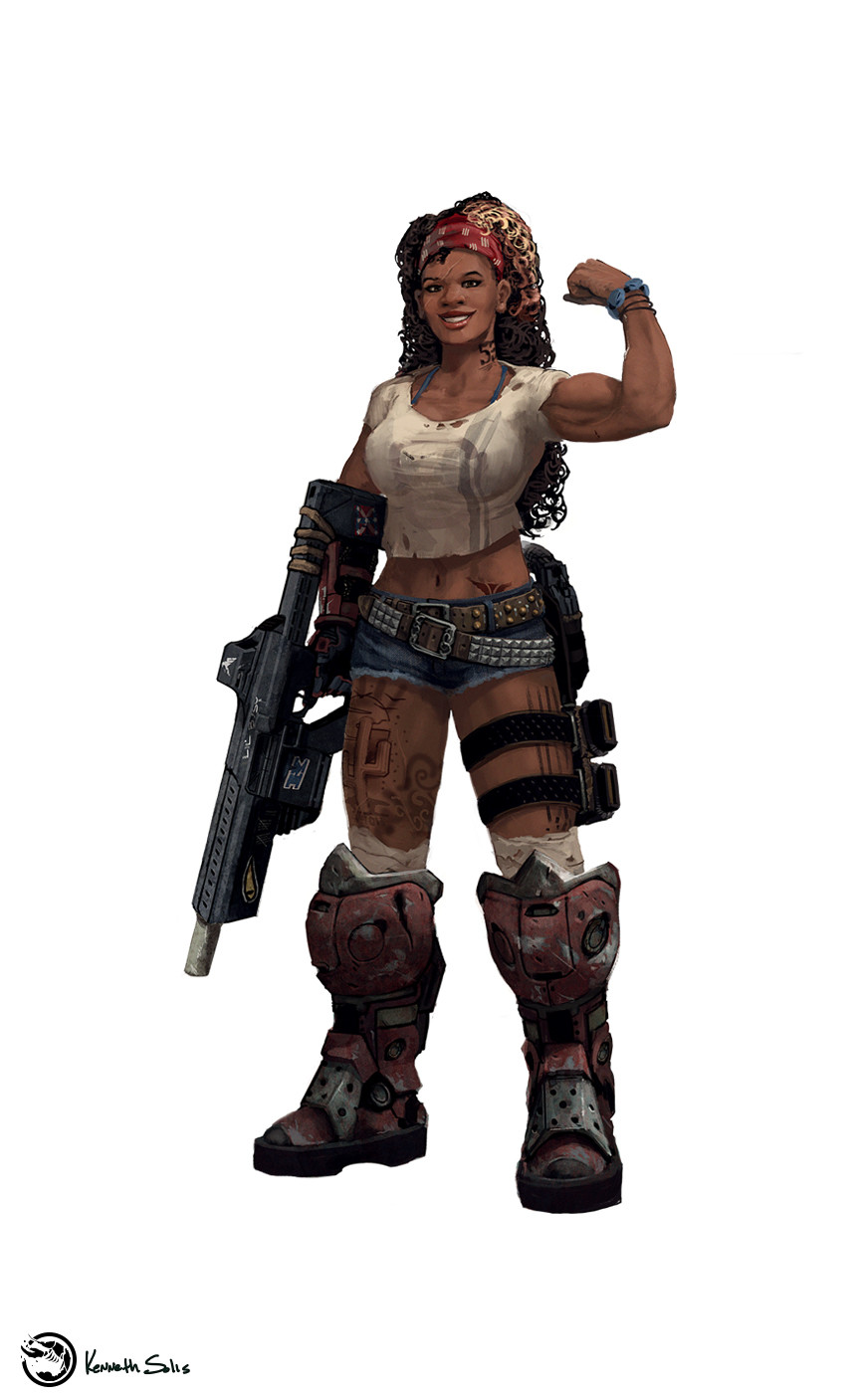

The Tough Hero
The Tough Hero uses their Constitution score to best advantage. Taking a level in this class provides improved health and physical stamina. Better hit points, good fortitude, and the ability to shrug off some amount of damage combine to define the Tough Hero. A Tough hero might be built like a truck or possess a great amount of endurance. They can take a lot of physical punishment, rarely get sick, and are often is hard to move.
A Tough Hero can be stubborn or single-minded, may feel protective of others, and usually succeeds because they stay in the contest long after the competition has crumbled. They are often steadfast and confident to a fault.
Examples Of Tough Heroes
Stunt persons, bodyguards, enforcers, wrestlers, and athletes who demand extreme staying power or who must withstand a lot of physical punishment all fall within the purview of the Tough hero.
Class Features
As a tough hero, you gain the following class features.
Hit Points
- Hit Dice: 1d10 per tough hero level
- Hit Points at 1st Level: 10 + your Constitution modifier
- Hit Points at Higher Levels: 1d10 (or 6) + your Constitution modifier per tough hero level after 1st
Proficiencies
- Armour: Light armour, medium armour, shields
- Weapons: Simple weapons
- Saving Throws: Constitution and one of Charisma, Intelligence, or Strength.
- Skills: Choose two from Acrobatics, Animal Handling, Athletics, History, Insight, Intimidation, Perception, and Survival
Second Wind
You have a limited well of stamina that you can draw on to protect yourself from harm. On your turn, you can use a bonus action to regain hit points equal to 1d10 + your tough hero level. Once you use this feature, you must finish a short or long rest before you can use it again.
At 9th and 17th level, you can use this ability one additional time before a rest.
Iron Skin
When you are not wearing any armour, your Armour Class equals 10 + your Dexterity modifier + your Constitution modifier. Additionally, when you are wearing armour, you can use your Constitution modifier in place of your Dexterity modifier for calculating your Armour Class. If you have a negative Dexterity modifier, the penalty is applied even if you use your Constitution modifier to calculate Armour Class.
Resilience
Starting at 2nd level, when you are reduced to 0 hit points but not killed outright, you can drop to 1 hit point instead. You can’t use this feature again until you finish a long rest.
The Tough Hero
| Level | Proficiency Bonus | Features |
|---|---|---|
| 1st | +2 | Second Wind, Iron Skin |
| 2nd | +2 | Resilience, Untiring |
| 3rd | +2 | Advanced Class |
| 4th | +2 | Ability Score Improvement |
| 5th | +3 | Extra Attack, Fortitude |
| 6th | +3 | Damage Reduction, Steel Gut |
| 7th | +3 | Advanced Class Feature |
| 8th | +3 | Ability Score Improvement |
| 9th | +4 | Pull Through, Second Wind (Two Uses) |
| 10th | +4 | Advanced Class Feature |
| 11th | +4 | Improved Resilience |
| 12th | +4 | Ability Score Improvement |
| 13th | +5 | Energy Resistance, Payback |
| 14th | +5 | Remain Conscious |
| 15th | +5 | Advanced Class Feature |
| 16th | +5 | Ability Score Improvement |
| 17th | +6 | Bulwark, Second Wind (Three Uses) |
| 18th | +6 | Advanced Class Feature |
| 19th | +6 | Ability Score Improvement |
| 20th | +6 | Survivor |
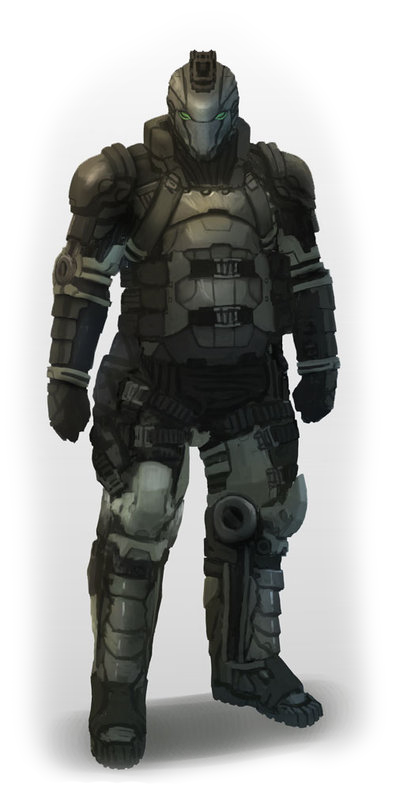
Untiring
You are especially hardy and can keep working for hours. Beginning at 2nd level, you have advantage on saves to avoid exhaustion.
Advanced Class
At 3rd level, choose an Advanced Class. The Advanced Class you choose grants you features at 3rd level and again at 7th, 10th, 15th, and 18th level. On these levels, rather than gaining a health increase dictated by this class, your health increase is based on the advanced class you choose.
Ability Score Improvement
When you reach 4th level, and again at, 8th, 12th, 16th, and 19th level, you can increase one ability score of your choice by 2, or you can increase two ability scores of your choice by 1. As normal, you can’t increase an ability score above 20 using this feature. Alternatively, you can select a feat instead of increasing your ability scores.
Extra Attack
Starting at 5th level, you can attack twice, instead of once, whenever you take the Attack action on your turn.
Fortitude
Beginning at 5th level, when you finish a short or long rest, you gain temporary hit points equal to your level + your Constitution modifier.
Damage Reduction
Beginning at 6th level, bludgeoning, piercing and slashing damage that you take from non-magical sources is reduced by an amount equal to your Constitution modifier.
Steel Gut
Your determination allows you to shrug off effects that would otherwise harm you. Starting at 6th level, when you are subjected to an effect that allows you to make a Constitution saving throw to take only half damage, you instead take no damage if you succeed on the saving throw, and only half damage if you fail.
Pull Through
You cling to life, even on the brink of death. Beginning at 9th level, when you make a death saving throw that would result in your death if failed, you have advantage
Improved Resilience
Starting at 11th level, you can use your Resilience feature again after finishing a short or long rest.
Energy Resistance
Starting at 13th level, when you take acid, cold, fire, lightning, or thunder damage, you can use your reaction to gain resistance against the triggering damage type until the start of your next turn.
You can use this feature a number of times equal to your Constitution modifier (a minimum of once). You regain any expended uses when you finish a long rest.
Payback
Starting at 13th level, when you take damage from a creature, you can use your reaction to gain advantage on attacks against that creature until the end of your next turn.
Remain Conscious
Beginning at 14th level, when you are reduced to 0 hit points, you may continue to act until you fail a death saving throw. While at 0 hit points, your speed is halved, and you cannot use bonus actions or reactions.
Bulwark
Your hardiness reaches incredible levels. Beginning at 17th level, your Damage Reduction feature now applies to all damage you take. Additionally, you can spend an action or bonus action bracing for damage. Until the start of your next turn, your Damage Reduction feature reduces incoming damage by 2 times your Constitution modifier. If you move, this effect ends.
Survivor
At 20th level, you attain the pinnacle of resilience in battle. At the start of each of your turns, you regain hit points equal to 5 + your Constitution modifier if you have no more than half your hit points left. You don’t gain this benefit if you have 0 hit points.

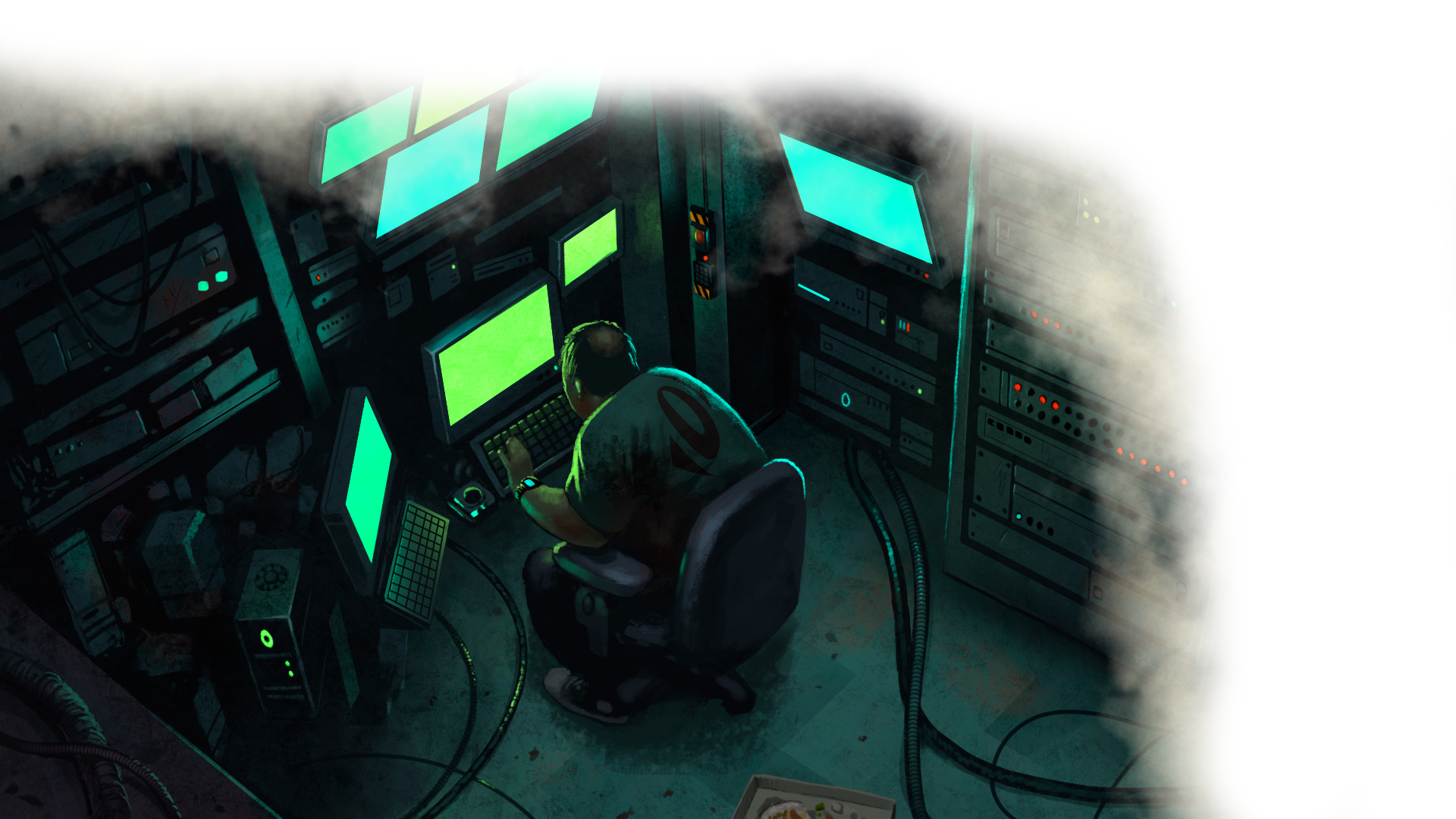
The Smart Hero
The Smart Hero uses their Intelligence score to best advantage. Taking a level in this class demonstrates educational training in an academic or technical subject. Learning and reasoning powers combine to define the Smart Hero.
A Smart Hero might be brainy or bookish. They may possess uncanny reasoning skills or the ability to puzzle their way out of any situation. They’re bright, quick-witted, and possessed of a great deal of knowledge - or at least the ability to gather that knowledge if they so choose.
Examples Of Smart Heroes
Scientists and researchers of all descriptions, academics, law enforcement or military professionals who specialize in using tactics, deduction, or reason, and many kinds of white-collar professionals fall within the scope of the Smart Hero.
Class Features
As a smart hero, you gain the following class features.
Hit Points
- Hit Dice: 1d6 per smart hero level
- Hit Points at 1st Level: 6 + your Constitution modifier
- Hit Points at Higher Levels: 1d6 (or 4) + your Constitution modifier per smart hero level after 1st
Proficiencies
- Armour: Light armour, medium armour, shields
- Weapons: Simple weapons
- Tools: One set of tools of your choice
- Saving Throws: Intelligence and one of Wisdom, Dexterity or Constitution.
- Skills: Choose three from Animal Handling, History, Insight, Investigation, Medicine, Nature, Perception, and Religion
Expertise
At 1st level, choose two of your skill proficiencies, or one of your skill proficiencies and one of your tool proficiencies. Your proficiency bonus is doubled for any ability check you make that uses either of the chosen proficiencies.
At 9th level, you can choose two more of your skill proficiencies (or one skill and one tool) to gain this benefit.
The Smart Hero
| Level | Proficiency Bonus | Features |
|---|---|---|
| 1st | +2 | Expertise, Plan |
| 2nd | +2 | Trick, Deliberate Defence |
| 3rd | +2 | Advanced Class |
| 4th | +2 | Ability Score Improvement |
| 5th | +3 | Extra Attack, Subject Analysis |
| 6th | +3 | Exploit Weakness, Polymath |
| 7th | +3 | Advanced Class Feature |
| 8th | +3 | Ability Score Improvement |
| 9th | +4 | Expertise, Plan (Two Uses) |
| 10th | +4 | Advanced Class Feature |
| 11th | +4 | Improved Trick |
| 12th | +4 | Ability Score Improvement |
| 13th | +5 | Quick Mind, Intuitive Communication |
| 14th | +5 | Improved Plan |
| 15th | +5 | Advanced Class Feature |
| 16th | +5 | Ability Score Improvement |
| 17th | +6 | Improved Exploit Weakness, Plan (Three Uses) |
| 18th | +6 | Advanced Class Feature |
| 19th | +6 | Ability Score Improvement |
| 20th | +6 | Master Plan |
Plan
At 1st level, you can take an action to formulate a plan. You can choose up to six creatures (including yourself) to include in the plan. For each creature, choose one of the following; attack rolls, saving throws, or ability checks. In the next minute, each creature can activate their benefit once to gain a bonus equal to your Intelligence modifier to the chosen rolls for one round.
You must complete a short or long rest before you can use this ability again. At 11th and 17th level, you gain additional uses of this ability.
Trick
Beginning at 2nd level, you can take an action to attempt to trick one creature. The creature must have an Intelligence of 6 or higher, and be able to see and hear you (but not necessarily understand you). The creature must make an Intelligence saving throw with a DC of 8 + your proficiency bonus + your Intelligence modifier. If the saving throw fails, the creature is stunned until the end of its next turn.
You can use this feature a number of times equal to your Intelligence modifier (a minimum of once). You regain any expended uses when you finish a long rest.
Deliberate Defence
Starting at 2nd level, your careful manoeuvring can help you avoid attacks. When you are not wearing any armour, your Armour Class equals 10 + your Dexterity modifier + your Intelligence modifier. You may use your Intelligence modifier in place of your Dexterity modifier for calculating your Armour Class. If you have a negative Dexterity modifier, the penalty is applied even if you use your Intelligence modifier to calculate Armour Class.

Additionally, when you make a saving throw against an effect you can see, you can use your reaction to add your Intelligence modifier to your roll. You can use this feature a number of times equal to your Intelligence modifier (a minimum of once). You regain any expended uses when you finish a long rest.
Advanced Class
At 3rd level, choose an Advanced Class. The Advanced Class you choose grants you features at 3rd level and again at 7th, 10th, 15th, and 18th level. On these levels, rather than gaining a health increase dictated by this class, your health increase is based on the advanced class you choose.
Ability Score Improvement
When you reach 4th level, and again at, 8th, 12th, 16th, and 19th level, you can increase one ability score of your choice by 2, or you can increase two ability scores of your choice by 1. As normal, you can’t increase an ability score above 20 using this feature. Alternatively, you can select a feat instead of increasing your ability scores.
Extra Attack
Starting at 5th level, you can attack twice, instead of once, whenever you take the Attack action on your turn.
Subject Analysis
Beginning at 5th level, your analytical skills improve further. When you spend one minute or more observing a creature or object, you learn whether the creature or object has any damage immunities, resistances or vulnerabilities and what they are. For the next 10 minutes you score critical hits against the target on rolls of 18 or higher.
Additionally, you have advantage on any checks to determine the function of a technological or magical device.
Subject Analysis
Beginning at 5th level, your analytical skills improve further. As an action, you analyze one creature or object that you can see within 60 feet of you, and you learn whether the creature or object has any damage immunities, resistances or vulnerabilities and what they are. For the next 10 minutes you score critical hits against the target on rolls of 18 or higher.
You can use this feature a number of times equal to your Intelligence modifier (a minimum of once). You regain any expended uses when you finish a long rest.
You may use this feature without expending any uses when you spend one minute or more observing a creature or object.
Additionally, you have advantage on any checks to determine the function of a technological or magical device.
Exploit Weakness
At 6th level, you can use a bonus action to assess a creature’s weaknesses. You use your Intelligence bonus instead of your Strength or Dexterity bonus to attack rolls and damage rolls against this creature for 1 minute as you spot weaknesses in its physiology or fighting style.
You can use this feature a number of times equal to your Intelligence modifier (a minimum of once). You regain any expended uses when you finish a long rest.
Polymath
Starting at 6th level, you can study in preparation for completing a task. If you spend half an hour or more researching a given skill in which, you can add your proficiency bonus to the next skill check you make using that skill. To conduct this research, you must have access to suitable research materials, either in the form of written material or internet access.
Improved Trick
At 11th level, you can target up to three creatures with your Trick. Additionally, you may use your Trick as a bonus action.
Quick Mind
Beginning at 13th level, your sharp wit allows you to act quickly. You add your Intelligence modifier to your Initiative bonus.
Intuitive Communication
Beginning at 13h level, you are usually able to understand speech and writing even if you don’t speak the language. When you read or hear a language you do not know, you can make an Intelligence (Investigation) check to try to understand the message. The DC for the check depends on the situation: DC 10 if the language is in the same lingual group as your language, DC 15 if the language is unrelated to any of your known languages, and DC 20 if the language is unique or ancient. On a success you understand the general meaning of the message, but this ability in no way simulates being able to converse or fluently read and write in a given language.
Improved Plan
At 14th level, when you make a Plan, each creature included in the plan gains two of the listed benefits. Each benefit is activated separately.
Improved Exploit Weakness
Beginning at 17th level, when you use your Exploit Weakness feature, it applies to each creature you can see or have seen in the last minute. Additionally, the duration of your Exploit Weakness feature increases to 10 minutes, and there is no longer a limit to your usage of this feature.
Master Plan
At 20th level, when you make a Plan, each creature included in the plan gains all three of the listed benefits. Each benefit can be activated separately.

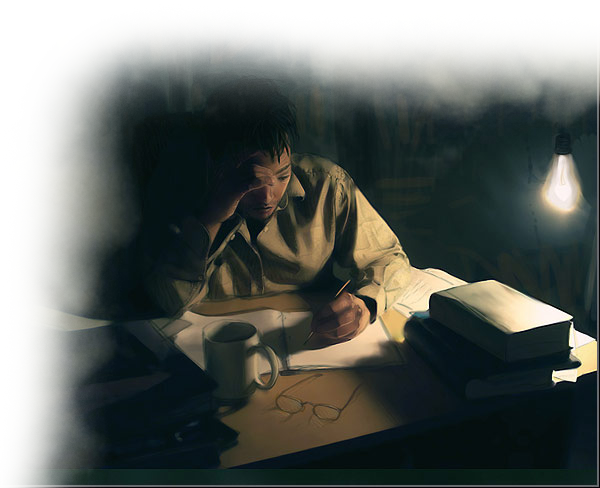
The Dedicated Hero
The Dedicated Hero uses their Wisdom score to best advantage. Taking a level in this class demonstrates a focus on willpower, common sense, perception, and intuition. Sense of self and devotion of purpose, as well as keen senses and a greater ability to analyse information combine to define the Dedicated Hero.
A Dedicated Hero might be insightful or understanding, or they might be perceptive or possessed of wisdom beyond her years. They may be alluring or fascinating. They might be devoted to a cause, an ideal, or a faith that’s bigger than themself while still possessing an unshakable confidence in their own abilities
Examples Of Dedicated Heroes
Health care of workers, clergy, activists, investigators, and those dedicated to a cause or idea all fall within the range of the Dedicated Hero.
Class Features
As a dedicated hero, you gain the following class features.
Hit Points
- Hit Dice: 1d6 per dedicated hero level
- Hit Points at 1st Level: 6 + your Constitution modifier
- Hit Points at Higher Levels: 1d6 (or 4) + your Constitution modifier per dedicated hero level after 1st
Proficiencies
- Armour: Light armour, medium armour, shields
- Weapons: Simple weapons
- Saving Throws: Wisdom and one of Charisma, Intelligence, or Strength.
- Skills: Choose two from Animal Handling, Athletics, History, Insight, Intimidation, Investigation, Medicine, Perception, Religion, Stealth, and Survival
Empathy
You add half your proficiency bonus to any Wisdom or Charisma ability check you make that doesn’t already use your proficiency bonus.
The Dedicated Hero
| Level | Proficiency Bonus | Features |
|---|---|---|
| 1st | +2 | Empathy, Helpful |
| 2nd | +2 | Danger Sense, Caregiver (d6) |
| 3rd | +2 | Advanced Class |
| 4th | +2 | Ability Score Improvement |
| 5th | +3 | Extra Attack, Intuition |
| 6th | +3 | Teamwork, Caregiver (d8) |
| 7th | +3 | Advanced Class Feature |
| 8th | +3 | Ability Score Improvement |
| 9th | +4 | Expertise, Rapport |
| 10th | +4 | Advanced Class Feature |
| 11th | +4 | Awareness |
| 12th | +4 | Ability Score Improvement |
| 13th | +5 | Improved Teamwork, Caregiver (d10) |
| 14th | +5 | Unshakeable |
| 15th | +5 | Advanced Class Feature |
| 16th | +5 | Ability Score Improvement |
| 17th | +6 | Cool Under Pressure, Caregiver (d12) |
| 18th | +6 | Advanced Class Feature |
| 19th | +6 | Ability Score Improvement |
| 20th | +6 | Superior Intuition |
Caregiver
Starting at 2nd level, you can help revitalise your allies over the course of a short rest. If you or any friendly creatures spend hit dice over the course of the short rest by spending one or more Hit Dice, each of those creatures regains an extra 1d8 hit points.
The extra hit points increase when you reach certain levels in this class: to 1d8 at 6th level, 1d10 at 13th level, and 1d12 at 17th level.
Advanced Class
At 3rd level, choose an Advanced Class. The Advanced Class you choose grants you features at 3rd level and again at 7th, 10th, 15th, and 18th level. On these levels, rather than gaining a health increase dictated by this class, your health increase is based on the advanced class you choose.
Helpful
You can use the Help action as a reaction or as a bonus action. Additionally, when you use the Help action to aid an ally in attacking a creature, the target of that attack can be within 30 feet of you, rather than 5 feet of you, if the target can see or hear you.
Danger Sense
At 2nd level, you gain an uncanny sense of when things nearby aren’t as they should be, giving you an edge when you dodge away from danger. You have advantage on Dexterity saving throws against effects that you can see, such as traps and spells. To gain this benefit, you can’t be blinded, deafened, or incapacitated.
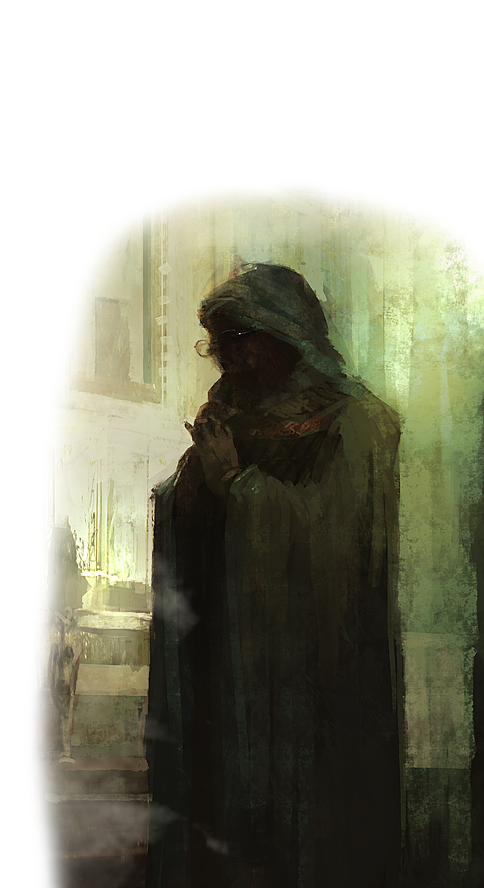
Ability Score Improvement
When you reach 4th level, and again at, 8th, 12th, 16th, and 19th level, you can increase one ability score of your choice by 2, or you can increase two ability scores of your choice by 1. As normal, you can’t increase an ability score above 20 using this feature. Alternatively, you can select a feat instead of increasing your ability scores.
Extra Attack
Starting at 5th level, you can attack twice, instead of once, whenever you take the Attack action on your turn.
Intuition
Starting at 5th level, you have a special insight into dangerous situations. When you use this ability make a Wisdom check. On results of 20 or above, ask the Game Master three questions from the following list. On results of 10 or above, ask the Game Master two questions from the following list. On results below 10, ask the Game Master one question from the following list.
- What happened here recently?
- What is about to happen?
- What here is useful or valuable to me?
- Who’s really in control here?
- What here is not what it appears to be?
- What is the most dangerous thing in this situation?
- What’s my best way in? • What’s my best way out? • Are there any dangers I haven’t noticed? • What’s the biggest threat?
With the Game Master’s permission, you can ask a question that is not on the list, as long as it is along similar lines. The Game Master can qualify their answer in any way they like, but must provide as honest an answer as possible.
You can use this feature a number of times equal to your Wisdom modifier (a minimum of once). You regain any expended uses when you finish a long rest.
Teamwork
Your skills can really make your allies shine. At 6th level, when you use the Help action, you can choose one ally within 60 feet of you that is allied with you. That creature may make one weapon attack with its reaction, provided that it can see or hear you. You can use this feature a number of times equal to your Wisdom modifier (a minimum of once). You regain any expended uses when you finish a long rest.
Expertise
At 9th level, choose two of your skill proficiencies. Your proficiency bonus is doubled for any ability check you make that uses either of the chosen proficiencies.
Rapport
Beginning at 9th level, your connection with others allows you to better aid them. When you use the help action, the creature you aid also adds your Wisdom modifier to their next ability check or attack roll.
Awareness
At 11th level, your perception of the world around you is almost supernatural. You have advantage on initiative rolls and cannot be surprised
Improved Teamwork
You excel at getting people to work together as a unit. Beginning at 13th level, when you use you Teamwork feature, you can choose two allies within 60 feet of you rather than one.
Additionally, as a bonus action, select up to five allies within 60 feet of you who can see or hear you. They can use their reactions to immediately take actions. Once you use this ability, you cannot use it again until you complete a long rest.
Unshakeable
At 14th level, you have advantage on saving throws against being charmed or frightened.
Cool Under Pressure
Beginning at 17th level, nothing can shake your confidence in a task in which you are skilled. Whenever you make an ability check that lets you add your proficiency bonus, you can use an action, bonus action, or reaction to treat a d20 roll of 9 or lower as a 10.
Superior Intuition
At 20th level, you have advantage on any Wisdom checks when using your Intuition feature.
Additionally, your Danger Sense feature applies even when you are blinded or deafened, and you gain blindsight to a range of 30 feet. If you already have blindsight, increase its range by 30 feet.

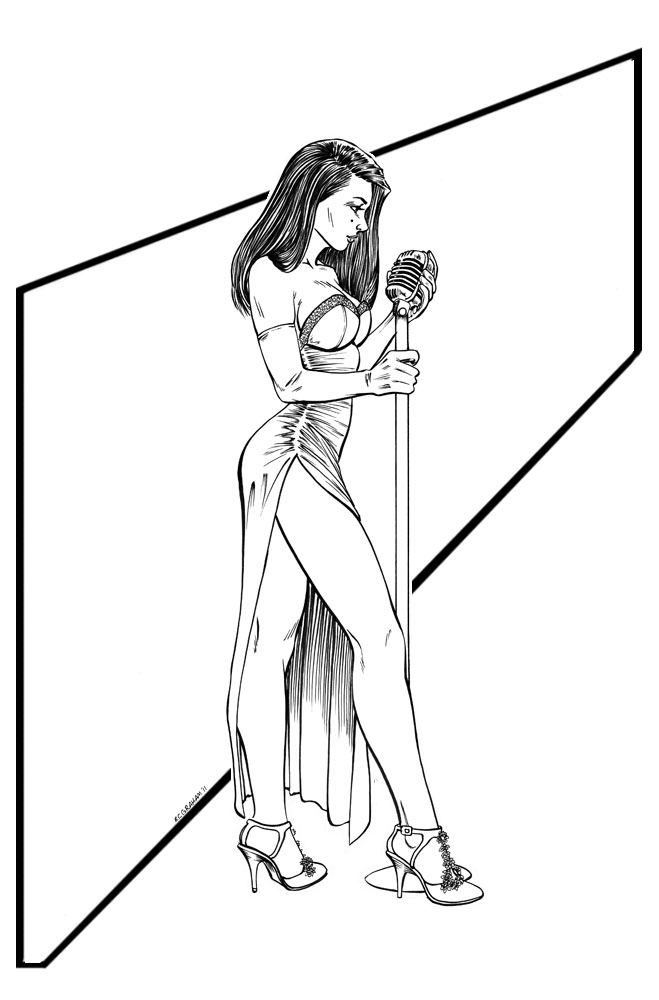
The Charismatic Hero
The Charismatic Hero uses their Charisma score to best advantage. Taking a level in this class demonstrates a facility for connecting with others, developing proficiency at influencing their actions, and improving your ability to win their support through debate, compromise, or seduction. Personal magnetism, applied interaction techniques, and a touch of charm combine to define the Charismatic Hero.
A Charismatic Hero might be charming or engaging; they might be strikingly handsome or possessed of a great personal magnetism. They may be alluring or fascinating. Whether captivating or compelling, they are definitely appealing on a number of different levels.
Examples Of Charismatic Heroes
Persuasive leaders, attractive celebrities and personalities, inspiring politicians, adept negotiators, entertainers, seducers, flirts, fast-talkers, con artists and suave gamblers all fall within the domain of the Charismatic Hero.
Class Features
As a charismatic hero, you gain the following class features.
Hit Points
- Hit Dice: 1d6 per charismatic hero level
- Hit Points at 1st Level: 6 + your Constitution modifier
- Hit Points at Higher Levels: 1d6 (or 4) + your Constitution modifier per charismatic hero level after 1st
Proficiencies
- Armour: Light armour, medium armour, shields
- Weapons: Simple weapons
- Saving Throws: Charisma and one of Wisdom, Dexterity or Constitution.
- Skills: Choose two from Animal Handling, Deception, History, Insight, Intimidation, Performance, and Persuasion
Charm
You can use an action to try and charm a creature. The creature must have an Intelligence score of at least 6, and be able to see and hear you. The creature must make a Wisdom saving throw with a DC of 8 + your proficiency bonus + your Charisma modifier. It has advantage on the saving throw if you or your companions are fighting it. On a failed save, the target is charmed. You must concentrate to maintain, this effect, as if concentrating on a spell.
The target repeats the saving throw after 1 minute to attempt to end the effect. If the creature’s saving throw is successful, it is immune to this ability for 24 hours. The effect ends immediately if the target is attacked or threatened.
Inspiration
You can inspire others through stirring words. To do so, you use a bonus action on your turn to choose one creature other than yourself within 60 feet of you who can hear you. That creature gains one Inspiration die, a d6.
The Charismatic Hero
| Level | Proficiency Bonus | Features |
|---|---|---|
| 1st | +2 | Charm, Inspiration (d6) |
| 2nd | +2 | Favour, Taunt |
| 3rd | +2 | Advanced Class |
| 4th | +2 | Ability Score Improvement |
| 5th | +3 | Extra Attack, Font of Inspiration |
| 6th | +3 | Bolstering Inspiration, Inspiration (d8) |
| 7th | +3 | Advanced Class Feature |
| 8th | +3 | Ability Score Improvement |
| 9th | +4 | Inspiration (d10), Favour (Two Uses) |
| 10th | +4 | Advanced Class Feature |
| 11th | +4 | Captivate |
| 12th | +4 | Ability Score Improvement |
| 13th | +5 | Dazzle, Inspiration (d12) |
| 14th | +5 | Snap Out of It |
| 15th | +5 | Advanced Class Feature |
| 16th | +5 | Ability Score Improvement |
| 17th | +6 | Improved Taunt, Favour (Three Uses) |
| 18th | +6 | Advanced Class Feature |
| 19th | +6 | Ability Score Improvement |
| 20th | +6 | Superior Inspiration |
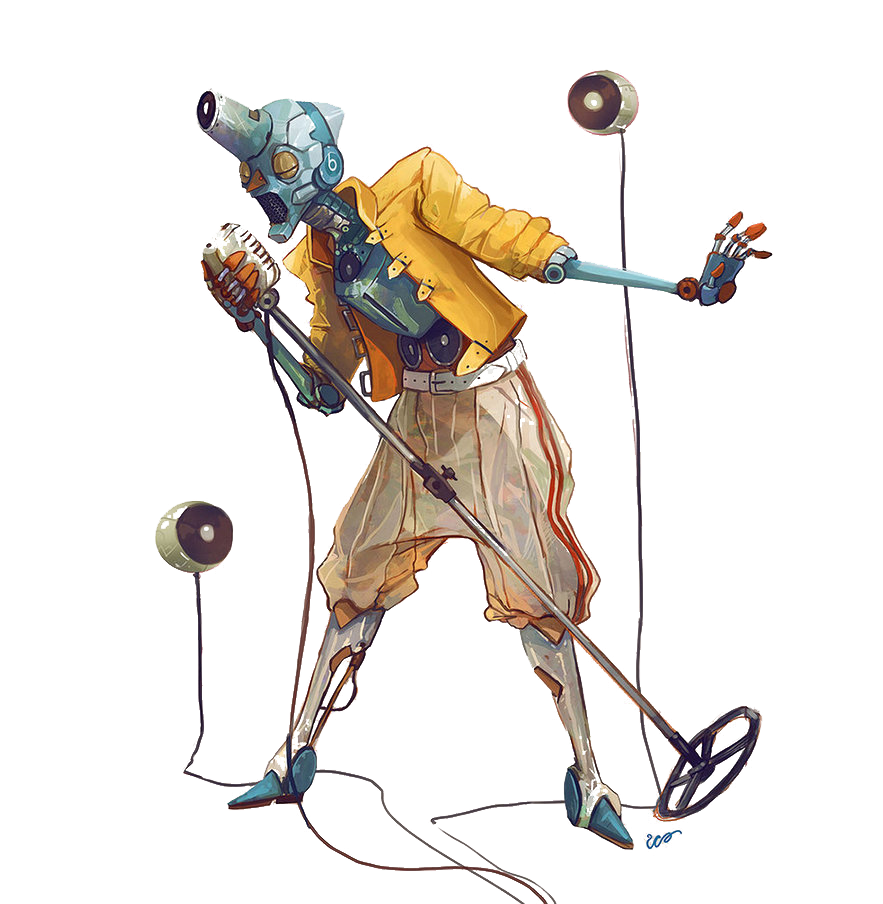
Once within the next 10 minutes, the creature can roll the die and add the number rolled to one ability check, attack roll, or saving throw it makes. The creature can wait until after it rolls the d20 before deciding to use the Inspiration die, but must decide before the GM says whether the roll succeeds or fails. Once the Inspiration die is rolled, it is lost. A creature can have only one Inspiration die at a time.
You can use this feature a number of times equal to your Charisma modifier (a minimum of once). You regain any expended uses when you finish a long rest.
Your Inspiration die changes when you reach certain levels in this class. The die becomes a d8 at 6th level, a d10 at 9th level, and a d12 at 13th level.
Favour
Beginning at 2nd level, you gain special consideration when calling in favours. When you choose to leverage your reputation, you can treat your reputation score as 10 points higher when determining how much the favour decreases your reputation. Once you have used this ability, you cannot use it again until you have finished a long rest.
At 9th and 17th levels you gain an additional use of this ability. You regain all expended uses once you have finished a long rest.
Alternative Favour
The Charismatic Hero "Favour" ability makes use of the reputation system introduced later in this chapter. For those that don't wish to use the reputation system, the following alternative ability is offered. Beginning at 2nd level, when talking to another character, you may attempt to gain a favour from them. By spending 1 minute or more talking to a character, you can ask them for a favour. To do so, make a Charisma (Persuasion) check, with a DC set by the GM, as appropriate for your relationship with that character. If you are successful, that character will provide the favour, provided it causes them no harm. Once you have used this ability, you cannot use it again until you have finished a long rest.
At 9th and 17th levels you gain an additional use of this ability. You regain all expended uses once you have finished a long rest.
Taunt
Starting at 2nd level, you gain the ability to undermine a target’s confidence. You may use your bonus action to taunt a creature. The creature must have an Intelligence score of at least 6, and be able to see and hear you. The creature must make a Wisdom saving throw with a DC of 8 + your proficiency bonus + your Charisma modifier. On a failed save, the target has disadvantage on its next attack roll, ability check, or saving throw.
Advanced Class
At 3rd level, choose an Advanced Class. The Advanced Class you choose grants you features at 3rd level and again at 7th, 10th, 15th, and 18th level. On these levels, rather than gaining a health increase dictated by this class, your health increase is based on the advanced class you choose.
Ability Score Improvement
When you reach 4th level, and again at, 8th, 12th, 16th, and 19th level, you can increase one ability score of your choice by 2, or you can increase two ability scores of your choice by 1. As normal, you can’t increase an ability score above 20 using this feature. Alternatively, you can select a feat instead of increasing your ability scores.
Extra Attack
Starting at 5th level, you can attack twice, instead of once, whenever you take the Attack action on your turn.
Font of Inspiration
Beginning when you reach 5th level, you regain all of your expended uses of Inspiration when you finish a short or long rest.
Bolstering Inspiration
Beginning at 6th level, your inspiring presence bolsters your allies. Whenever a creature rolls an Inspiration die granted by you, they gain temporary hit points equal to the Inspiration die roll + your Charisma modifier.
Captivate
Starting at 11th level, when you use your Charm ability successfully, you can choose the render the creature unaware of its surroundings while you continue to hold its attention.
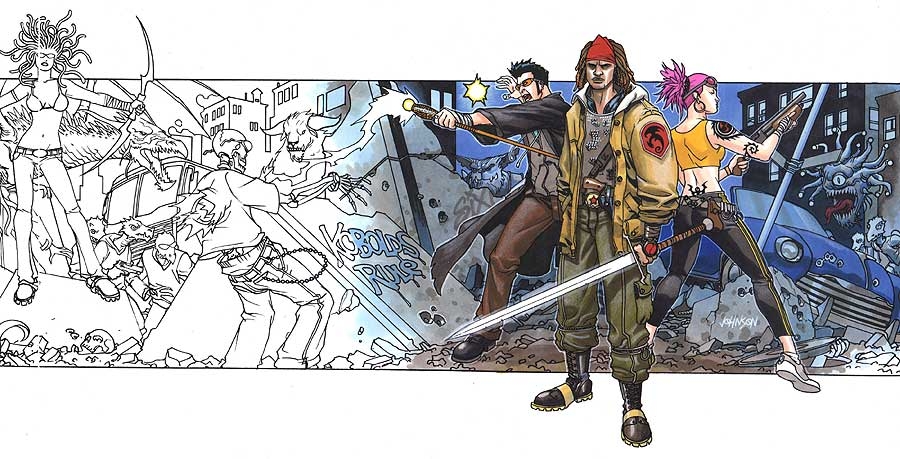
As long as the creature is charmed by you, you become the target’s sole focus. The target pays no attention to anyone else. This focusing of the target’s attention allows other characters to take actions of which the captivated target is unaware. The target has disadvantage on Wisdom (Perception) checks made to perceive anything other than you, and attacks against the target have advantage until the effect ends.
Additionally, you may now use your Charm feature against up to 3 creatures at once, though a separate Charm action is required for each creature you wish to charm.
You can use this feature a number of times equal to your Charisma modifier (a minimum of once). You regain any expended uses when you finish a long rest.
Dazzle
At 13th level, you gain ability to dazzle and distract at a moment’s notice When a creature makes an attack against you, you can spend your reaction to add your Charisma modifier to your AC for the attack.
To apply this bonus, the creature must have an Intelligence score of at least 6, and be able to see and hear you.
Snap Out of It
You are exceedingly good at helping others overcome mental effects. At 14th level, you may use your action to speak to an ally within 60 feet that is Charmed or Frightened, ending either of those conditions on the target.
At the GM's discretion, this ability may be used to end other conditions, as long as the source of the condition is a psychological or magical effect.
Improved Taunt
Starting at 17th level, your ability to fluster your targets with insults improves.
When a creature you can see fails on an attack roll, ability check or saving throw, you can use your Taunt action as a reaction against that creature.
Additionally, when a creature fails it’s saving throw against your Taunt they suffer disadvantage on attack rolls, ability checks, and saving throws until the end of their turn.
Superior Inspiration
At 20th level, when you roll initiative and have no uses of Inspiration left, you regain one use.
Credits
Document and contents by Dylan Richards (Reddit: u/Altavus , Tumblr: decision-paralysis, Blogger: Decision Paralysis)
Art
Cover
d20 Past Cover Art: Dave Johnson (Devilpig on DeviantArt)
Basic Classes
d20 Future Cover Art: Dave Johnson (Devilpig on DeviantArt) Icons: Game-icons.net Female Soldier: ml-11mk on DeviantArt Master Roshi Wallpaper: Wallup Sprinting Robot: Tarantad0 on DeviantArt 53rd Duster: Kenneth Solis on Artstation Heavy Ops: philzero on DeviantArt Super Hacker: John Petersen on Wordpress Lab Equipment: kisspng Investigator: jezebel on DeviantArt Priest Sermon: leventep on DeviantArt The Singer: renonevada on DeviantArt Mercury: RodrigoICO on DeviantArt d20 Modern Cover Early Sketch: Dave Johnson (Devilpig on DeviantArt)
Source Material
"d20 Modern" role-playing game by Wizards of the Coast.
Built heavily upon "d20 Modern 5e Conversion" by Edward Wilson.